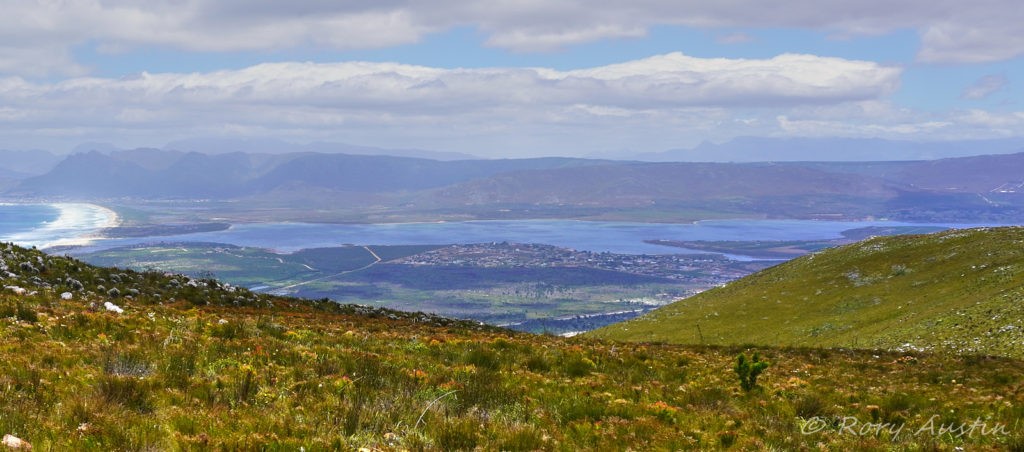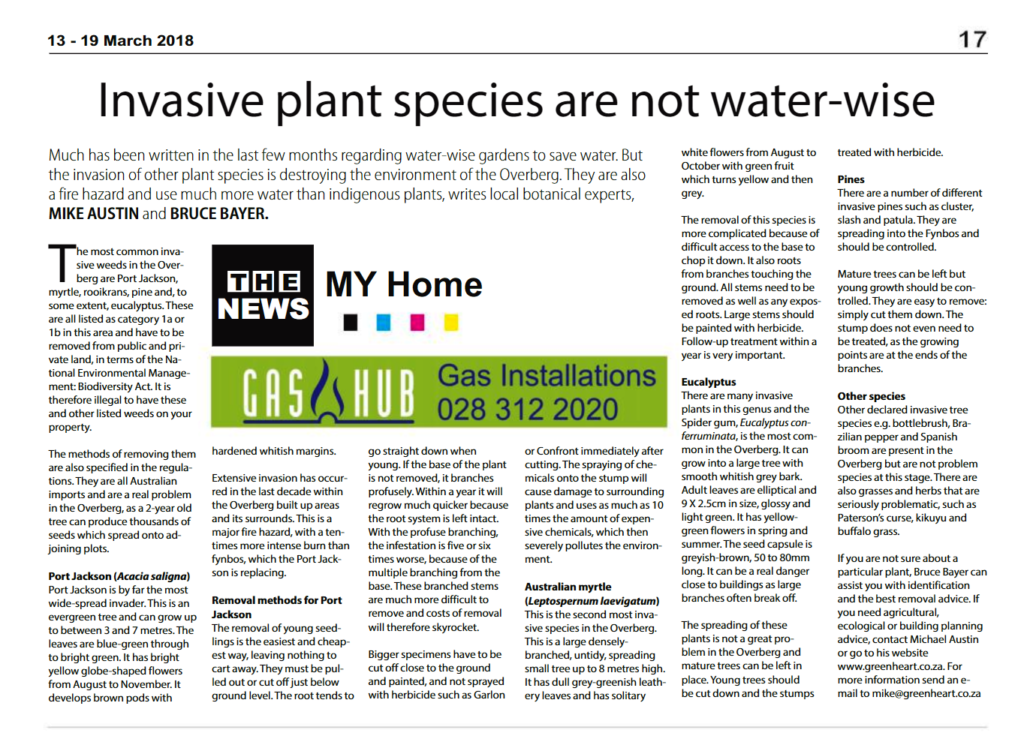
A publication on Invasive plant species are not water-wise was published in the Village news in March 2018. This was written by Mike Austin and moderated by Bruce Bayer, an environmentalist of note in Fisherhaven. Bruce knows his plant species very well. In fact he can walk through a piece natural vegetation and identify species by scientific name as he walks. He has constructed lists of plant species for most of the green areas of Fisherhaven. These lists show the distribution of plant species across different areas within Fisherhaven and the variation is quite considerable. Fisherhaven has a variety of soils and ecosystems which change over relatively short distances. This is thus, a meeting point of different environments and is therefore of considerable environmental importance.

The publication on invasive plant species are not water-wise defines the main invasive species in Fisherhaven. A pamphlet was also produced on these plant species and widely circulated. This information provided the basis for the data report on the status of biological invasions in the Bot Estuary and immediate environs and on a general report of Botfriends activity.
Most of the invasive species tend to dominate the environment and therefore considerably reduce the biodiversity, leading to an unstable and unsustainable environment. They also grow bigger than the local indigenous species and are more flammable than the indigenous species. This leads to increases in the potential fire hazard within the environment by as much as ten times. This increases fire intensity so much that they become uncontrollable, such as the Knysna fires and the Betties Bay fire. Fire is a natural occurrence in the Fynbos area and is required every 15-20 years to maintain Fynbos health. More often repeated high intensity fires tends to increase invasive species and dries out the environment, increasing the risk of fires and therefore damaging the environment further.

Recent Comments